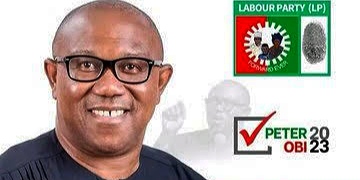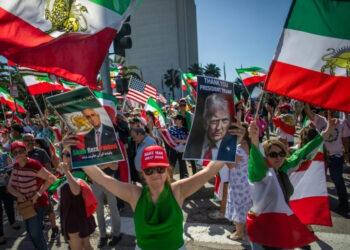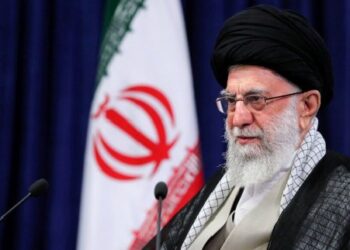By John Ikani
Ahead of the 2023 presidential election, which holds 173 days from today, Nigerians in the diaspora are forming groups of committees to launch crowdfunding initiatives for the presidential candidate of the Labour Party (LP), Mr. Peter Obi.
Privately-owned newspaper THISDAY reports that the diasporans – largely made up of young enthusiastic Nigerians in the tech sector yearning for new leadership at the helm of affairs in the country – plan to unveil in the coming days a crowdfunding portal with a target to raise $150 million from Obi’s supporters in the diaspora and N100 billion from those in Nigeria.
Crowdfunding is an online financing method that raises money by soliciting small individual investments or contributions from a large number of people. Political crowdfunding is widely considered an acceptable medium for raising funding from grassroots supporters.
People without large amounts of wealth are seldom asked to support political parties financially. But with the advent of crowdfunding, this has changed and supporters with relatively low financial strength are now seen as a huge resource for most parties, according to a report by Sweden-based International Institute for Democracy and Electoral Assistance (IDEA).
The goal
A day after the diaspora support groups pledged to raise $150 million for Obi’s campaign, LP Chairman, Julius Abure on Monday, inaugurated an 11-man committee on Thursday to drive the party’s diaspora movement.
According to the LP chairman, the committee would recommend to the national chairman, the creation of diaspora chapters and monitor their activities.
The developments are ultimately geared towards helping the LP set up more structures across the country and make its flagbearer, Peter Obi a formidable contender in the presidential race.
The inauguration of the diaspora committee coincides with the foreign tour of the former Anambra state governor.
In the past few weeks, Obi has been to the United States of America, Canada, London, Rome and Germany to engage with Nigerians and seek their support for the 2023 presidential elections.
Abure added that the committee would also organise fund-raising for other party’s candidates seeking election in the forthcoming polls.
Reactions
Reacting to the moves, some groups have called on the Independent National Electoral Commission (INEC) to “without delay” disqualify the LP presidential flagbearer, Peter Obi, from the 2023 Presidential race.
One of such groups, the Tinubu-Shettima Connect, a campaign group for All Progressives Congress (APC) presidential candidate Bola Tinubu, also threatened to take legal action against Obi to stop him from participating in the 2023 presidential election for allegedly engaging in activities that contravene the Electoral Act 2022.
In the statement signed by its convener, Adebanjo Moyosore, the group said it was not only illegal but criminal to raise campaign funds from abroad through unknown sources or unidentified groups.
“Section 85 of the Electoral Act has clearly explained this; Section 85 (a) (b) provides that any political party that: (a) holds or possesses any fund outside Nigeria in contravention of section 225 (3) (a) of the constitution, commits an offence and shall, on conviction, forfeit the funds or assets purchased with such funds to the commission, and in addition, may be liable to a fine of at least N5million, or (b) retain any fund or other asset remitted to it from outside Nigeria in contravention of section 225,” part of the statement reads.
What the law says
The 1999 constitution (as amended) and the Electoral Act of 2022 have provisions for the role of INEC in the collection of annual statements of political parties, analysis of sources of funds and restrictions on campaign funds.
Section 225 (3)(a) of the 1999 constitution prohibits political parties from having assets or funds in foreign countries.
Section 225 (3) states that: “No political party shall — hold or possess any funds or other assets outside Nigeria; or be entitled to retain any funds or assets remitted or sent to it from outside Nigeria.
“Any funds or other assets remitted or sent to a political party from outside Nigeria shall be paid over or transferred to the commission within twenty-one days of its receipt with such information as the omission may require.”
Section 85 of the Electoral Act 2022 reechoes the provisions of section 225 of the 1999 constitution.
Section 85 states: “Any political party that – (a) holds or possesses any fund outside Nigeria in contravention of section 225 (3) (a) of the Constitution, commits an offence and shall on conviction forfeit the funds or assets purchased with such funds to the Commission and in addition may be liable to a fine of at least 5,000,000; or (b) retains any fund or other asset remitted to it from outside Nigeria in contravention of section 225 (3) (a) of the Constitution commits an offence and shall on conviction forfeit the funds or assets to the Commission and in addition may be liable to a fine of at least N5,000,000.”
Interpretation of the law
Speaking on Arise TV’s morning show yesterday, Paul Chibuke Ananaba, a professor of law and senior advocate of Nigeria (SAN), said nothing prevents a political party’s candidate, in this case, Peter Obi, from receiving donations from the diaspora.
According to him: “Section 225, doesn’t say anything about the candidate. When you read 225 of the Constitution both 225A that came from the Fourth Operation and 225 itself, and then Section 85 of the Electoral Act, along with Section 152 of the Electoral Act, then you get a clearer picture.
“No candidate is precluded from raising funds from outside Nigeria by the law as it is today. But the political party sponsoring him cannot.
“So if Mr. Peter Obi is raising as Labour Party, that is an offense. That is not correct. That is wrong.
“The candidate is a candidate, the party is a party. The candidate is the person sponsored by the party and has a legal significance, a legal status, separate from the party. So it may be necessary to amend the law if we intend candidates to be bound by that law. A law may have to be put in place for that purpose.
“But as an individual, there may be other laws to talk about not Electoral Act, not the Constitution; it maybe talking about things, like financial regulations and things that go with terrorism financing and all of that.
Similarly, Timi Olagunju, a lawyer and policy analyst, said the Electoral Act does not forbid “receiving” funds from Nigerians in the diaspora, adding that the law specifically used the words “hold” and “possess” instead.
“Nigerians in the diaspora can send funds to individuals (in this case Mr. Obi or anyone who receives it as a gift on his behalf) through any means, for example, Western Union.
“A non-governmental organization, can also receive such and promote activities on behalf of a candidate or party, as there is no statutory provision that prevents Nigerian NGOs from engaging in advocacy or from endorsing candidates for public office,” he said
However, he further clarified that political parties cannot directly receive foreign funds into their domiciliary or any other account, in its name for the purpose of an election, adding that this is a clear breach of the law.
Other key legal provisions on election financing & expenses
It is worthwhile to note that section 88 (8) of the Electoral Act 2022 states that “no individual or other entity shall donate to a candidate more than N50 million.”
Also section 88 (1) states that “election expenses shall not exceed the sum stipulated in subsections (2)-(7).”
According to subsection 2, “the maximum election expenses to be incurred by a candidate at a presidential election shall not exceed N5 billion.“
In his interpretation, human rights lawyer, Dr. Mike Ozekhome (SAN) urged Diasporans to ensure that no individual or other entity shall donate to a candidate more than N50 million as contravention leads to a fine of N500,000 upon conviction or imprisonment to a term of 9 months or both.



































